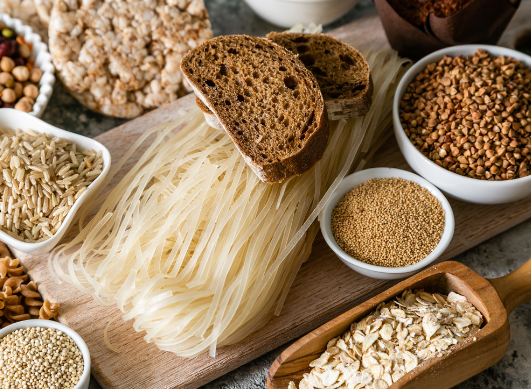- Home
- Share
- Forum
- Hypercholesterolemia Forum
- Living with cardiovascular diseases
- 7 heart benefits of dark chocolate
Patients Hypercholesterolemia
7 heart benefits of dark chocolate
- 24 views
- 0 support
- 1 comment
All comments

robjmckinney
AmbassadorGood advisor
![]()
robjmckinney
Ambassador
Last activity on 01/04/2025 at 19:00
Joined in 2015
618 comments posted | 12 in the Hypercholesterolemia Forum
53 of their responses were helpful to members
Rewards
-
Good Advisor
-
Contributor
-
Messenger
-
Committed
-
Explorer
-
Evaluator
Sorry don't like it, uneatable, prefer milk chocolate by far with all its delicious faults!
See the signature
robjmckinney
Give your opinion
Members are also commenting on...
Articles to discover...

15/05/2018 | Advice
After a heart attack, it is necessary to resume doing sport or to start doing it

14/03/2025 | Nutrition
Carbohydrates: Friend or foe? Everything you need to know to make the right choices!

01/03/2025 | Nutrition
Psyllium husk: A natural remedy for gut support, blood sugar control, and heart health?
Subscribe
You wish to be notified of new comments
Your subscription has been taken into account






Margarita_k
Community managerGood advisor
Margarita_k
Community manager
Last activity on 07/10/2020 at 11:39
Joined in 2016
1,195 comments posted | 18 in the Hypercholesterolemia Forum
1 of their responses was helpful to members
Rewards
Good Advisor
Contributor
Messenger
Committed
Explorer
Evaluator
Evidence is building that products of the cacao plant, especially dark chocolate, can be good for your heart.
Studies show that people who eat dark chocolate have healthier cardiovascular systems, including better blood circulation, lower blood pressure, lower cholesterol levels, and fewer strokes — a major health risk for people living with atrial fibrillation.
1. Cacao's Link to Heart Disease Prevention
Early signs that cacao is a heart-healthy food came from the unusually healthy elders of the island population of Kuna Indians in Panama. They drank large amounts of unprocessed cacao — about four cups a day — and were free of heart disease. When they moved to cities, adopted Western ways, and gave up traditional cacao drinks, the Kuna developed high blood pressure in old age. Many studies, including 20 on cacao's effects on blood pressure alone, analyzed in a Cochrane Review and published in August 2012, show links between chocolate in the diet and markers of good heart health.
Use caution with cacao in your diet if you're prone to bad headaches, because chocolate may trigger migraines in some people. And people with chocolate allergies shouldn't eat any type of cacao product, including raw cacao, cacao nibs or powder, dark chocolate, or milk chocolate.
2. Chocolate's Secret Power for Heart and Blood Vessels
Seeds of the Theobroma cacao plant, the source of dark chocolate, are rich in active compounds known as antioxidants. Dark chocolate is one of the top 10 dietary sources of antioxidants, along with seasonings like cloves, mint, anise, cacao powder, and berries like black chokeberry and black elderberry, according to a report published in November 2010 in the European Journal of Clinical Nutrition. Dark chocolate is also rich in bioactive flavonols and theobromine, which have positive effects on cells of the heart and blood vessels, according to research published in December 2013 in The Journal of Clinical Hypertension.
A caveat if you're watching your fat intake: 1 ounce (oz) of dark chocolate, though low in cholesterol at only 2 milligrams (mg), has about 9 grams (g) of fat. When you consume dark chocolate that's more than 70 to 80 percent pure, the calories are relatively low. In less-concentrated forms — such as white or milk chocolate — ingredients other than chocolate add lots of calories but no proven heart benefits.
3. Dark Chocolate May Boost Your Circulation
More evidence of the health benefits of dark chocolate comes from an Italian study published in July 2014 in the Journal of the American Heart Association, which showed that eating dark chocolate helped people who have peripheral artery disease (PAD) walk farther and longer. PAD decreases blood flow to the arms and legs, so patients often have painful cramping and difficulty with exercise, even while walking. People with PAD in the study who ate 40 g (1.5 oz) of dark chocolate a day were able to walk 11 percent farther and for 15 percent longer than people who ate the same amount of milk chocolate. The dark chocolate used in the study contained more than 85 percent cacao and was rich in active compounds known as polyphenols. Researchers looked at markers of oxidative stress in the blood and found improvement in those who ate dark chocolate.
4. Cacao May Calm Blood Pressure
If your blood pressure has continued to climb over the years, here's some good news: Eating dark chocolate is also linked to significantly lower blood pressure, according to an extensive analysis of 20 randomized controlled trials published in August 2012 as a Cochrane Review. Most of the studies were short-term, but one 18-week trial showed a significant drop in blood pressure. In that study, people ate about 6 g (1/4 oz) of dark chocolate daily. Researchers compared this group with those who ate the same amount of white chocolate, and dark chocolate was the clear winner. Systolic blood pressure (the top number) in people who ate dark chocolate went down by three points, while diastolic blood pressure (the bottom number) went down by two points. If you’re tracking yours, keep in mind that an ideal blood pressure is less than 120/80.
5. Dark Chocolate May Lower Stroke Risk
Chocolate in the diet is linked to a lower risk of stroke, according to a Finnish study published in September 2012 in Neurology. Stroke is a major health concern for many — especially those with atrial fibrillation (afib). Stroke risk is five times higher in people with afib than in those without the condition, according to the National Stroke Association.
The Finnish researchers followed a group of more than 37,000 men for 10 years, counting instances of stroke. Those who ate about 63 g (2 oz) of chocolate per week had a lower risk of stroke compared with those who ate no chocolate. And five additional studies showed chocolate eaters had about a 20 percent average lower stroke risk than those who didn't eat chocolate. Dark chocolate helps reduce blood pressure and may have a role in coronary artery disease stability and diabetes, so it may help lower stroke risk. But you shouldn't replace prescription blood thinners or anticoagulants — the only treatments proven to prevent stroke — with chocolate.
6. Dark Chocolate Can Help You Lower Cholesterol
If you're struggling to get your high cholesterol under control, studies on blood cholesterol levels and chocolate are heartening. In a trial published in August 2005 in Hypertension, people ate 100 g (about 3 1/2 oz) of either dark chocolate or white chocolate a day for 15 days, and those who ate dark chocolate saw an average drop of 12 percent in their LDL cholesterol — the "bad cholesterol" that's linked to a higher risk of heart disease. In a Dutch trial published in June 2013 in The American Journal of Clinical Nutrition, people who ate dark chocolate had a significant increase in their HDL cholesterol, also known as “good cholesterol" because higher levels protect heart health. Researchers credited these healthy changes to theobromine, a compound found in cacao.
7. Dark Chocolate Relieves Stress on Your Heart
An often overlooked, but very real, risk factor for heart disease is stress. Blunting the effects of stress on the body is yet another way dark chocolate can protect heart health, which is good news even for people with a heart condition.
You'll be happy to know that the solace provided by dark chocolate is not limited to its good taste: Eating dark chocolate helped people cope with stressful situations. Researchers measured the stress hormones cortisol and epinephrine and then challenged people to do things like figure out a difficult math problem in their heads. Those who ate dark chocolate reported feeling less stress, and indeed had lower levels of stress hormones circulating in their blood following the stress test.
Source: everydayhealth.com